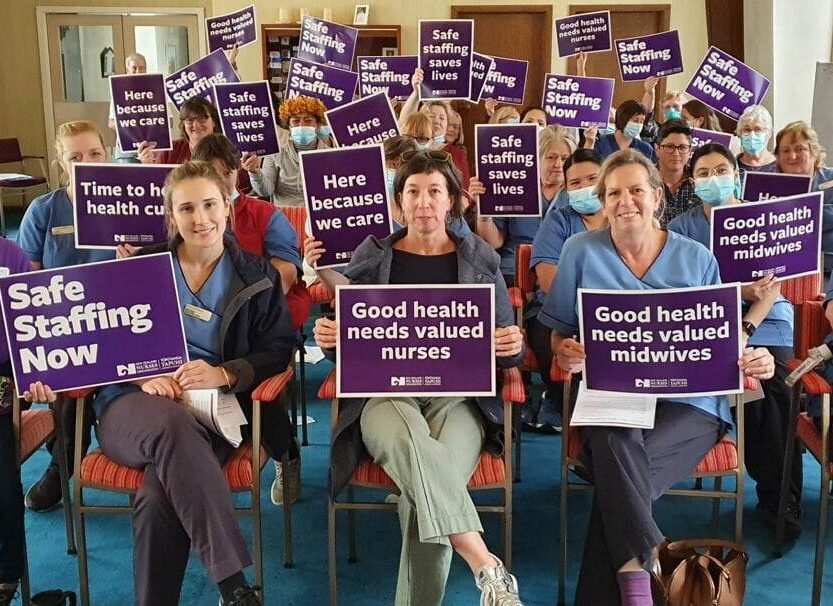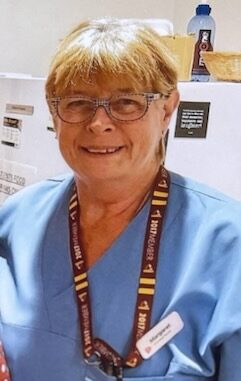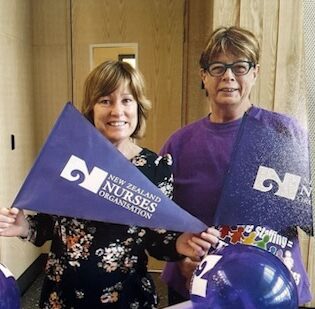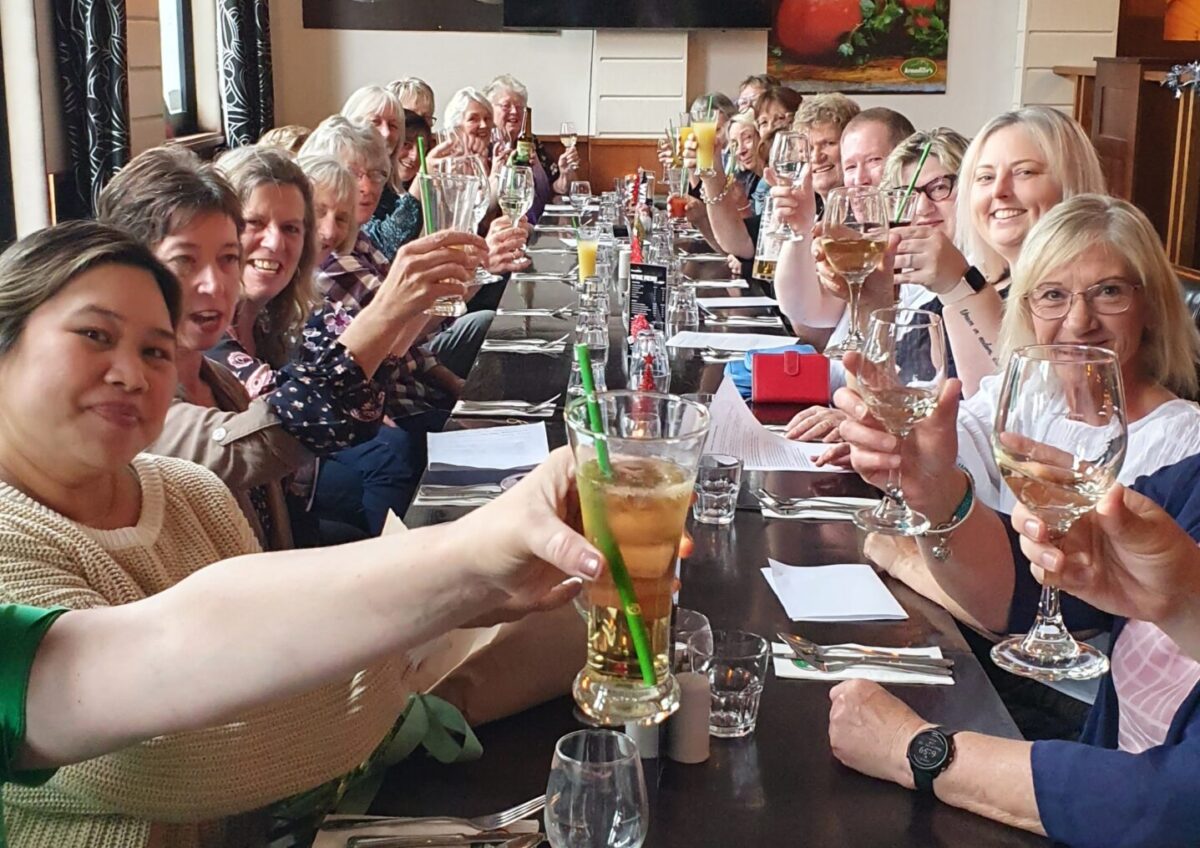NZNO — Tōpūtanga Tapuhi Kaitiaki o Aotearoa’s Te Whatu Ora members in July voted overwhelmingly to accept the Government’s pay equity settlement offer, after several strikes and protracted legal action over how far the back pay would stretch to as well as the rates themselves.
Ashburton district nurse Tegan McCully acknowledged the work done by many to get this far — and said this year’s historic pay equity settlement “raised hope, for nurses in other sectors, that they can also pursue and persist with their claims”.  “We’re all equally qualified and giving in our time, resources and expertise — and it would be really lovely for them to be acknowledged and rewarded as well.” Using the new Te Whatu Ora rates as a benchmark, NZNO has since lodged several more pay equity claims — for workers in care and support, primary health care, Plunket and hospices — as part of its campaign for all nurses to be paid the same. no matter where they work. NZNO’s successful Te Whatu Ora pay equity claim — lodged in 2017 — followed six years of “demoralising” delays but in the end had become one of the organisation’s most significant achievements, McCully said at an end-of-year celebration recently.
NZNO staff and members had done “years” of ground work to reach this year’s deal, such as finding comparative roles in male-dominated industries and working out a legal framework for the claim, said McCully, an NZNO delegate. “We had one shot to end gender-based pay discrimination in this country.” In 2022, a proposed settlement was rejected and legal action taken by NZNO over the proposal to dump back pay in favour of lump payments. “Finally”, in early 2023, another $1.5 billion was added to create a $4 billion pay equity offer — finally accepted by NZNO’s 36,000 Te Whatu Ora members, she said. ‘Long overdue’McCully said it was a “long overdue step” towards addressing the significant gender-based inequities nurses, midwives and health-care assistants (HCAs) faced in their everyday work. “It helps us feel seen and acknowledged. The demands on health-care workers and nurses are relentless — it just goes on and on and on,” she told Kaitiaki. “We work just as hard as men. We have a hugely qualified workforce — so many of my colleagues have postgrad qualifications . . . now we are just finally getting recognised, as a female-dominant workforce.” Nurses “hung in there” over the years, she told Kaitiaki. “We just kept persisting.” Te Whatu Ora members could “raise a toast for the win, for the hard-fought journey that was paved all those years ago by our nursing forebears”. |
‘Usually you get Christmas cake! ‘ Christchurch enrolled nurse (EN) Margaret McDowall retired in 2020 after 52 years of nursing — and was thrilled to finally receive her equity back pay this month, just in time for Christmas. “Usually you get Christmas cake!” McDowall — a former NZNO delegate and one of the nurses interviewed as part of the pay equity process of defining the role — said it was hugely validating and she hoped it would make nursing popular again. “I feel like my whole nursing life we were fighting to have someone acknowledge our worth — so it’s exciting,” she told Kaitiaki. “Hopefully it will encourage more young people into the nursing profession and we’ll get to keep them, not have New Zealand well-trained nurses disappear overseas and doing other things.”
McDowall said it felt like pay equity had taken an “eternity” — but an $20,000 increase on her base salary showed all the work had been worthwhile. “It’s pretty significant. It was worth it, all those interviews and all that time spent.” While she loved nursing — “I just enjoy the people and actually making a difference in someone’s life” — it was important to value the workforce, she said.  “[It’s] standing up for your rights. Women and nursing had been pushed down for long enough — so I’m really excited to see it going where it is.” McDowall was pleased for the current Te Whatu Ora workforce but acknowledged nurses and health workers outside Te Whatu Ora were still waiting for pay equity. “It’s just the beginning — and the beginning is always the hardest.” |
NZNO chief executive Paul Goulter has said attaining pay parity for all nurses, no matter where they work, would be a key focus in 2024 — noting new Prime Minister Christopher Luxon promised in the New Zealand Herald this would be pursued by National “with vigour” — a promise he also made in the Newshub leaders’ debate, below.
Goulter said NZNO would be seeking to achieve this through pay equity claims in many cases, where bargaining had not been effective.
“Achieving pay equity rates across the whole health sector will help the recruitment and retention of the New Zealand nursing workforce, and will encourage more people, particularly Māori and Pasifika, to enter nursing and remain in nursing roles.”




